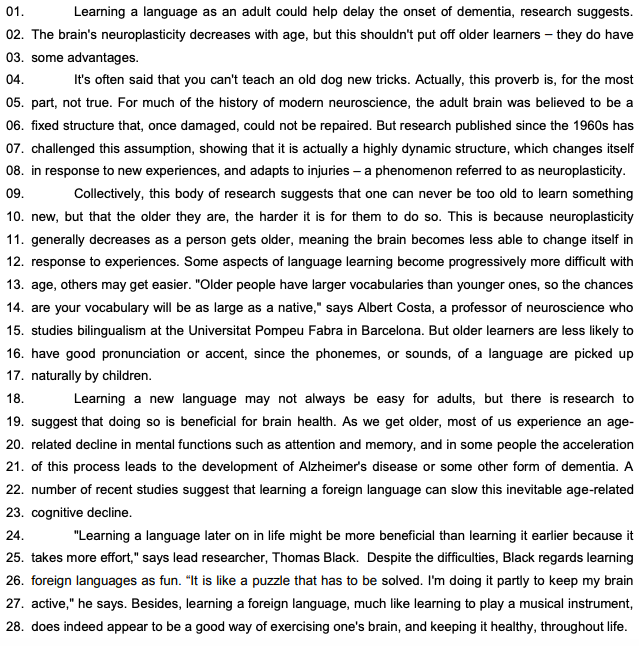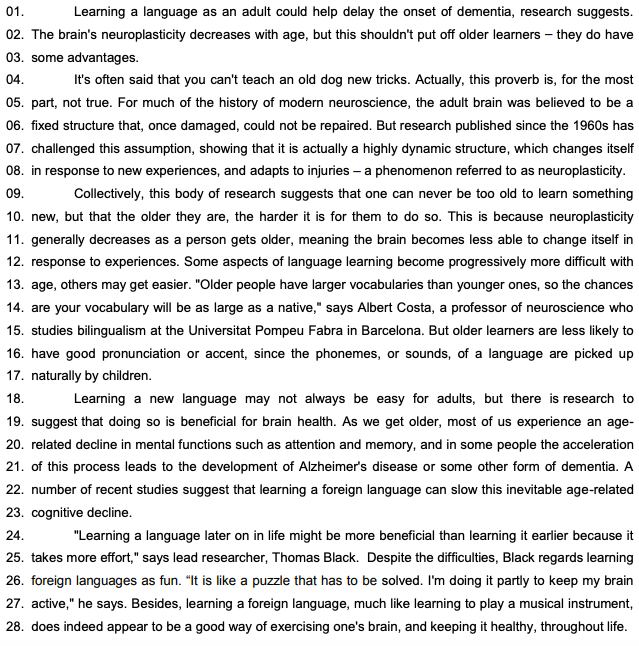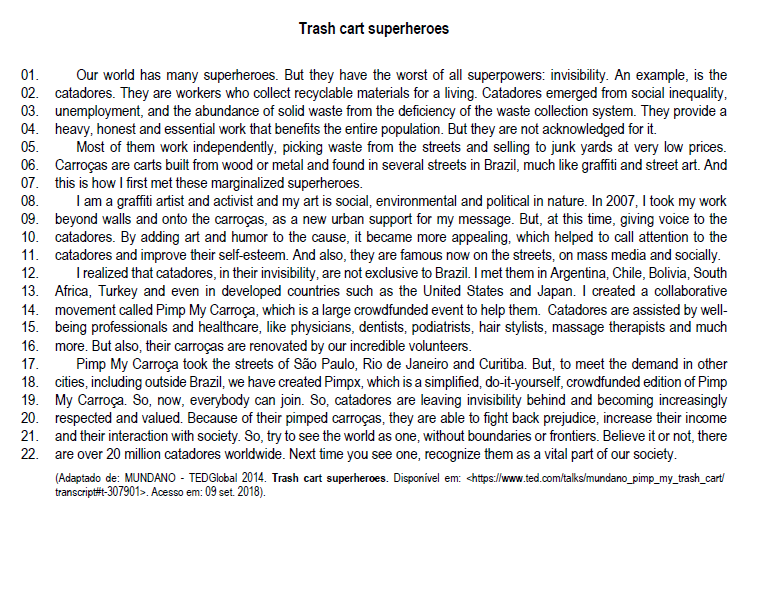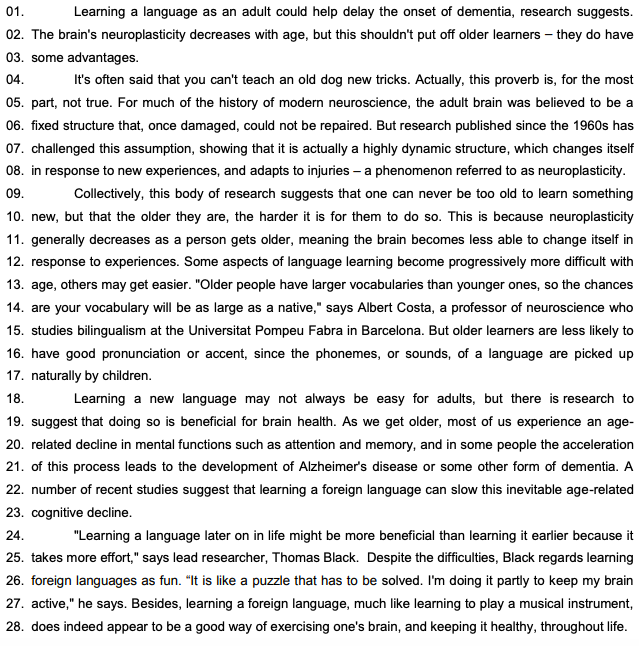Leia o texto para responder
à questão.
The Skills You Need To Succeed In 2020
By Avil Beckford – Aug 6, 2018.
The World Economic Forum reports that you need ten skills to thrive in 2020: complex problem solving; critical thinking; creativity; people management; coordinating with others; emotional intelligence; judgement and decision making; service orientation; negotiation; cognitive flexibility.
The ten skills on this list make sense fo r the age that we are living in. Of these, you want to focus on creative work, because that is where you are likely to remain employable. Every professional can be creative in the work she does.
You might have started to realize that you will need more than the ten skills listed earlier. Alvin Toffler once said, “The illiterate of the 21st century will not be those who cannot read and write, but those who cannot learn, unlearn, and relearn.”
In some instances, relearning could be adapting what you know to a new reality. Take cell phones as an example. When they first came out, they were used solely as communications devices. Convergence happened, and now our smartphones are minicomputers. People had to relearn how to use a phone.
In terms of work, you will have to adapt some of your skills to the jobs of the future, and you will also have to learn new skills. Here are some of the additional skills that you will need to succeed in 2020.
Learning how to learn. Since skills are constantly changing, you have to learn how to learn.
Analyzing information. When you take good and detailed notes, you can review them to pick out the big ideas, understand, and make sense of information.
Spotting patterns and trends. I recommend that you combine ideas from the different books that you read. By doing this, you may be able to spot ideas and trends.
Communicating – written and oral. You can combine ideas that once seemed unrelated to communicate them to influencers, who can help you to shape and implement them.
Understanding and leveraging technology. Technology is changing at an unprecedented pace, so you need to understand and keep on top of it.
<https://tinyurl.com/y7pahnqf> Acesso em: 15.10.2018. Adaptado.
De acordo com o texto, algumas habilidades adicionais serão necessárias para os empregos do futuro. A capacidade de fazer anotações detalhadas, selecionar ideias principais, entender e dar sentido às informações refere-se à habilidade de




